- Sep 22, 2013
- 4,956
- 250
- 85
Does American pluralism remind you of Wal-Mart?
This yarn was inspired by Gung-Ho.
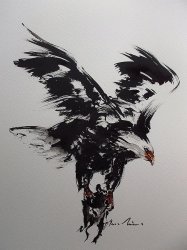
====
A group of idealists were planning a global underground 'secret club' comprised of Utopian philosophers and pedestrian poets and everyday 'madmen.' This group called themselves 'Clan Utopia' (since they were invested in applications of democracy that made everyday life more spiritual and comfortable). The clan included airline employees, politicians, CIA agents, musicians, celebrities, civil servants and chefs, religious priests, and Marxism scholars.

As we all know, the great Greek philosopher Aristotle devised ways to make the writings/teachings of Socrates and Plato more palatable/digestible to the masses by outlining lifestyle prescriptions that would make 'philosophical deconstruction' feel more consumer-friendly. Aristotle's iconic pupil, Alexander, went on to become a legendary warrior who changed the face of globalization consciousness (through intricate approaches to power-pyramids). Aristotelian Marxism therefore became a rallying point for the intellectuals of Camp Utopia, and the camp's directors and scholars designated their office-positions by wearing ski-masks (representing radicalism consciousness in lifestyle 'aesthetics').

American women were fascinated by fashion and couture, so Camp Utopia members reached out to them by creating structures/groups oriented towards lifestyle aesthetics. These structures/groups were involved in Facebook, MTV, Vanity Fair, and Bazaar and wanted to see the kind of pro-media consciousness symbolic of modern civilization (e.g., Bloomberg TV, QVC, Disney, etc.). Camp Utopia 'elders' were responsible for overseeing some of the amenities-vanities of the club such as access to Playboy, High Times, and Car & Driver (for social entertainment).
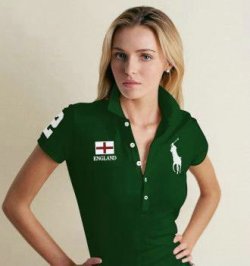
American horror-film makers were meanwhile busy presenting stories/images of great community intrigue (e.g., monsters/psychos preying on vulnerable modern neighborhoods across the USA). Films such as The Strangers, The Purge: Anarchy, and A Nightmare on Elm Street captured a new age fascination with traffic-metaphysics. Was globalization creating a new form of etiquette (e.g., MTV's The Real World)?

Kids and youths across America enjoyed night-life parties, camps, rock-concerts, and special parties designed to celebrate this new era celebration of populism and general traffic. They loved MTV, Facebook, and Nickelodeon, and their parents scrambled to keep pace with their youthful energy. Aristotle might have said, "Social mobilization creates forms of rituals."

A camp is a place for people (adults, children, animals) to meet and share space in nature and exercise convictions in life labors and teamwork and spiritual activities. There is a camp director and camp-coordinated social activities. In many ways, our modern Wall Street globalized new world is sort of like a 'giant camp' (encouraging participants to get involved in lifestyle-oriented networking activities such as Facebook). The members of Camp Utopia wanted to take this 'camp concept' to make an Aristotelian society of 'clans' devoted to the fruition of teamwork and pedagoguery. Camp Utopia chose as its totemic publication the society-fitness magazine Harper's Bazaar.
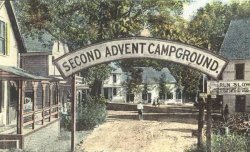
Americans were fascinated by comic books and fantasy-lore about incredible characters and daredevils such as Green Arrow (DC Comics), RoboCop (Hollywood), and Thumbelina (Disney) devoted to principles about democracy virtue, friendship, and teamwork. These optimistic tales reflected a social fascination with the contours of modern ethics and ideals (i.e., community values). Camp Utopia members elected to crown a fictional beautiful female archer named Green-Eyes (an advocate of Mother Nature) as its official 'Statue of Liberty.' Would Aristotle be pleased?

As we know, Darwin's theory of evolution outlined the course and outcomes of competitive species vying for dominion on an Earth with limited resources and carrying-capacity. Darwin talked about the proliferation and variegation of finches on an island and how this symbolized a contemplation of the branching of adaptive behaviors and the unpredictability of biology itself. Aristotle might have mentioned that such a theory would offer insights into the nature of networking and perhaps even power-pyramids. The members of Camp Utopia considered Darwin's symbolic finches reflective of a human fascination with 'competition diarism.'
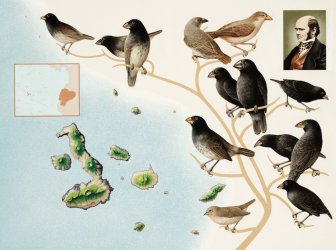
The term 'leviathan' refers to a metaphysical sea-beast of chaos signifying pure uncertainty and hence monstrosity. Camp Utopia was comprised of various philosophical clans, including a clan of pro-humanism radicals similar to the Hell's Angels, a clan of pro-capitalism idealists similar in outlook to the NRA, a clan of peace-loving artists similar to the 1960s hippies, a clan of Wall Street advocates similar in tone to the Teamsters, and a clan of Facebook groupies similar in outlook to the Beatniks. Camp Utopia was therefore 'diverse' and considered the modern 'leviathan' simply to be a monster of terrorism (e.g., ISIS). Networking was the new face of intellectualism.
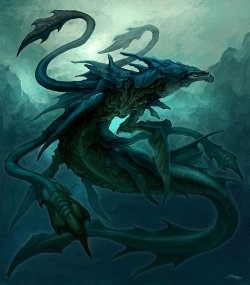
Adam and Eve defied God by eating fruit from the forbidden Tree of Knowledge. God admonished Adam and Eve and suggested they would now be on a journey towards redemption and repentance. When Jesus Christ was manifest in the Roman Empire and then foretold to return during the prophetic End of Days in the Book of Revelation, humanity took note of its special interest in 'ethics rapture.' The members of Camp Utopia considered such parables/proverbs of self-idealization as representative of a democratic idealism, so they celebrated the Book of Genesis as reflective of a human appreciation of general etiquette. Aristotle might have said, "Genesis is to NYC what Revelation is to 9/11."
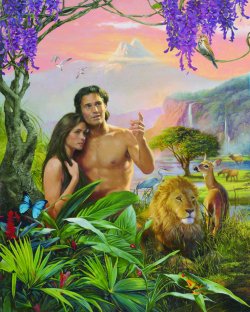
GOD: Aristotle's most useful teachings concerned the management of anger.
SATAN: Aristotle did suggest that anger is ubiquitous but self-control is divine.
GOD: Anyone can be angry; but those who can control/harness it are leaders.
SATAN: Do you think Camp Utopia is an attempt to redeem Eden?
GOD: Well, Adam and Eve transgressed in Eden, and Camp Utopia is 'idealistic.'
SATAN: Is such 'idealism' worthy of merit?
GOD: It's challenging remaining idealistic in a world governed by commerce.
SATAN: However, the World Bank and Wall Street symbolize objective governance.
GOD: It's so tricky governing capitalism...
SATAN: Yes, consumerism caters to convenience (not philosophy).
GOD: Aristotle might have said, "Money makes matters more civil."
SATAN: There's nothing 'civil' about Civil War or clan-warfare...
GOD: Perhaps the differing clans of Camp Utopia can agree about heroism!
SATAN: I think all the clans are fans of Captain America (Marvel Comics) in some fashion.
GOD: Yes, Captain American represents democracy-idealism.
SATAN: Democracy is much easier to cheer than capitalism...
GOD: That's because democracy is to Sinn Fein what capitalism is to the IRA.
SATAN: Yes, capitalism is the 'vice-head' of modern democracy (e.g., European Union).
GOD: I think America's 'Facebook culture' can promote networking.
SATAN: There's nothing wrong with a little 'photo-sharing indulgence.'
GOD: Technology/media is changing the way we look at anthropology.
SATAN: What was once Troy is now Apple.
====


This yarn was inspired by Gung-Ho.

====
A group of idealists were planning a global underground 'secret club' comprised of Utopian philosophers and pedestrian poets and everyday 'madmen.' This group called themselves 'Clan Utopia' (since they were invested in applications of democracy that made everyday life more spiritual and comfortable). The clan included airline employees, politicians, CIA agents, musicians, celebrities, civil servants and chefs, religious priests, and Marxism scholars.

As we all know, the great Greek philosopher Aristotle devised ways to make the writings/teachings of Socrates and Plato more palatable/digestible to the masses by outlining lifestyle prescriptions that would make 'philosophical deconstruction' feel more consumer-friendly. Aristotle's iconic pupil, Alexander, went on to become a legendary warrior who changed the face of globalization consciousness (through intricate approaches to power-pyramids). Aristotelian Marxism therefore became a rallying point for the intellectuals of Camp Utopia, and the camp's directors and scholars designated their office-positions by wearing ski-masks (representing radicalism consciousness in lifestyle 'aesthetics').

American women were fascinated by fashion and couture, so Camp Utopia members reached out to them by creating structures/groups oriented towards lifestyle aesthetics. These structures/groups were involved in Facebook, MTV, Vanity Fair, and Bazaar and wanted to see the kind of pro-media consciousness symbolic of modern civilization (e.g., Bloomberg TV, QVC, Disney, etc.). Camp Utopia 'elders' were responsible for overseeing some of the amenities-vanities of the club such as access to Playboy, High Times, and Car & Driver (for social entertainment).

American horror-film makers were meanwhile busy presenting stories/images of great community intrigue (e.g., monsters/psychos preying on vulnerable modern neighborhoods across the USA). Films such as The Strangers, The Purge: Anarchy, and A Nightmare on Elm Street captured a new age fascination with traffic-metaphysics. Was globalization creating a new form of etiquette (e.g., MTV's The Real World)?

Kids and youths across America enjoyed night-life parties, camps, rock-concerts, and special parties designed to celebrate this new era celebration of populism and general traffic. They loved MTV, Facebook, and Nickelodeon, and their parents scrambled to keep pace with their youthful energy. Aristotle might have said, "Social mobilization creates forms of rituals."

A camp is a place for people (adults, children, animals) to meet and share space in nature and exercise convictions in life labors and teamwork and spiritual activities. There is a camp director and camp-coordinated social activities. In many ways, our modern Wall Street globalized new world is sort of like a 'giant camp' (encouraging participants to get involved in lifestyle-oriented networking activities such as Facebook). The members of Camp Utopia wanted to take this 'camp concept' to make an Aristotelian society of 'clans' devoted to the fruition of teamwork and pedagoguery. Camp Utopia chose as its totemic publication the society-fitness magazine Harper's Bazaar.

Americans were fascinated by comic books and fantasy-lore about incredible characters and daredevils such as Green Arrow (DC Comics), RoboCop (Hollywood), and Thumbelina (Disney) devoted to principles about democracy virtue, friendship, and teamwork. These optimistic tales reflected a social fascination with the contours of modern ethics and ideals (i.e., community values). Camp Utopia members elected to crown a fictional beautiful female archer named Green-Eyes (an advocate of Mother Nature) as its official 'Statue of Liberty.' Would Aristotle be pleased?

As we know, Darwin's theory of evolution outlined the course and outcomes of competitive species vying for dominion on an Earth with limited resources and carrying-capacity. Darwin talked about the proliferation and variegation of finches on an island and how this symbolized a contemplation of the branching of adaptive behaviors and the unpredictability of biology itself. Aristotle might have mentioned that such a theory would offer insights into the nature of networking and perhaps even power-pyramids. The members of Camp Utopia considered Darwin's symbolic finches reflective of a human fascination with 'competition diarism.'

The term 'leviathan' refers to a metaphysical sea-beast of chaos signifying pure uncertainty and hence monstrosity. Camp Utopia was comprised of various philosophical clans, including a clan of pro-humanism radicals similar to the Hell's Angels, a clan of pro-capitalism idealists similar in outlook to the NRA, a clan of peace-loving artists similar to the 1960s hippies, a clan of Wall Street advocates similar in tone to the Teamsters, and a clan of Facebook groupies similar in outlook to the Beatniks. Camp Utopia was therefore 'diverse' and considered the modern 'leviathan' simply to be a monster of terrorism (e.g., ISIS). Networking was the new face of intellectualism.

Adam and Eve defied God by eating fruit from the forbidden Tree of Knowledge. God admonished Adam and Eve and suggested they would now be on a journey towards redemption and repentance. When Jesus Christ was manifest in the Roman Empire and then foretold to return during the prophetic End of Days in the Book of Revelation, humanity took note of its special interest in 'ethics rapture.' The members of Camp Utopia considered such parables/proverbs of self-idealization as representative of a democratic idealism, so they celebrated the Book of Genesis as reflective of a human appreciation of general etiquette. Aristotle might have said, "Genesis is to NYC what Revelation is to 9/11."

GOD: Aristotle's most useful teachings concerned the management of anger.
SATAN: Aristotle did suggest that anger is ubiquitous but self-control is divine.
GOD: Anyone can be angry; but those who can control/harness it are leaders.
SATAN: Do you think Camp Utopia is an attempt to redeem Eden?
GOD: Well, Adam and Eve transgressed in Eden, and Camp Utopia is 'idealistic.'
SATAN: Is such 'idealism' worthy of merit?
GOD: It's challenging remaining idealistic in a world governed by commerce.
SATAN: However, the World Bank and Wall Street symbolize objective governance.
GOD: It's so tricky governing capitalism...
SATAN: Yes, consumerism caters to convenience (not philosophy).
GOD: Aristotle might have said, "Money makes matters more civil."
SATAN: There's nothing 'civil' about Civil War or clan-warfare...
GOD: Perhaps the differing clans of Camp Utopia can agree about heroism!
SATAN: I think all the clans are fans of Captain America (Marvel Comics) in some fashion.
GOD: Yes, Captain American represents democracy-idealism.
SATAN: Democracy is much easier to cheer than capitalism...
GOD: That's because democracy is to Sinn Fein what capitalism is to the IRA.
SATAN: Yes, capitalism is the 'vice-head' of modern democracy (e.g., European Union).
GOD: I think America's 'Facebook culture' can promote networking.
SATAN: There's nothing wrong with a little 'photo-sharing indulgence.'
GOD: Technology/media is changing the way we look at anthropology.
SATAN: What was once Troy is now Apple.
====

